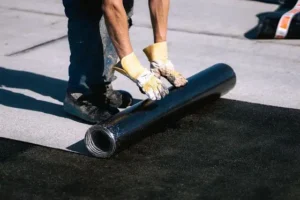Cementitious waterproofing is popular because of low pricing and easy application. As with any construction material, however, there are some disadvantages which must be taken into account while selecting the waterproofing for your project.
1. Lack of Flexibility
Once cured cement based waterproofing coatings become rigid.
Explanation: They do not adapt in expansion and contraction with the building materials which makes them susceptible to cracking in vibrating or thermally-moved structures.
2. Limited Crack Bridging Ability
Cementitious coatings are unable to effectively bridge hairline cracks.
Explanation: If the substrate is bound to crack over time, the coating is bound to crack as well, meaning that it will lose adhesion and allow water ingress.
3. Shorter Lifespan Compared to Other Systems
Durability of cementitious waterproofing is lower than liquid-applied or membrane systems.
Explanation: It is likely to deteriorate sooner, particularly in severe weather and aggressive chemical environments.
4. Poor Performance Under High Pressure or Dynamic Water Exposure
Not suitable for regions with negative water pressure or moving water.
Explanation: It excels in applications with positive pressure (such as water tanks), but when used in places where water would push from the other side like basements, it struggles.
5. Surface Preparation Is Critical
Requires a clean, solid, and slightly rough surface.
Explanation: Improper preparation can lead to poor adhesion and reduced effectiveness of the coating.
6. Not UV Resistant
Most cementitious coatings are not designed for exposed applications.
Explanation: Without UV protection, the coating may deteriorate if directly exposed to sunlight over time.
7. Moisture Curing Sensitivity
Curing conditions can impact the final performance.
Explanation: If the surface dries too quickly or is exposed to water too soon, the waterproofing properties can be compromised.
Conclusion
While cementitious waterproofing remains a cost-effective and easy-to-apply solution for many construction needs, it is important to recognize its limitations. For projects where flexibility, long-term durability, or exposure to challenging conditions is a concern, other systems like polyurethane, bituminous membranes, or liquid-applied coatings may offer better performance.
Contact Us
For more information or to inquire about our waterproof floor paint solutions, feel free to get in touch with us. We’re here to help!
- Phone: +86 138 6365 6701
- Email: Huafengwaterproof@gmail.com
- WhatsApp: +86 138 6365 6701
We look forward to assisting you with all your waterproofing needs!






